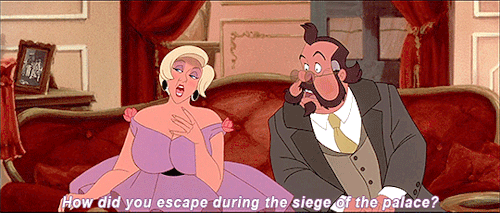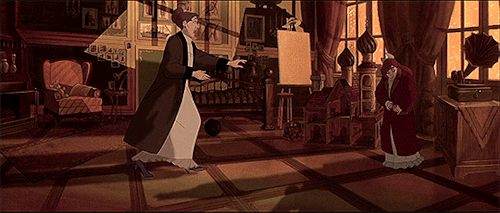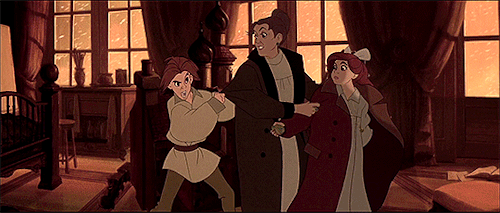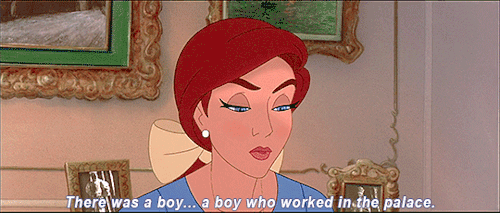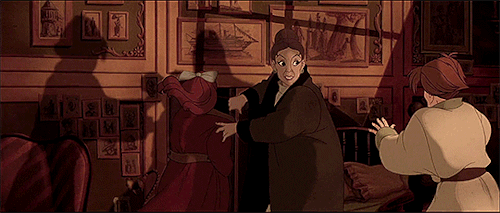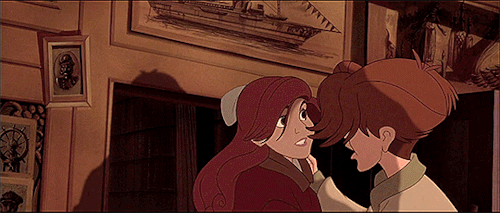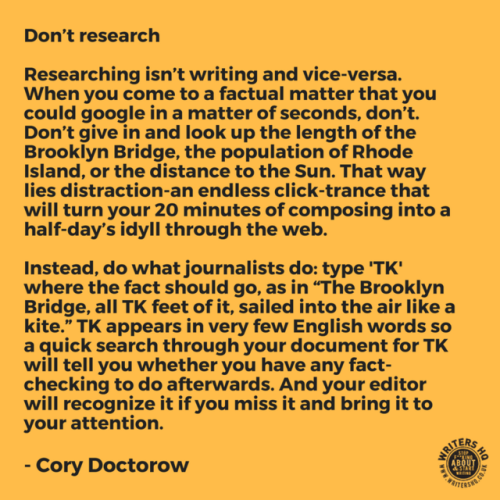agent-ishiguro
things that might inspire me or help with with my writing skills
55 posts
Latest Posts by agent-ishiguro
I just wrote over 2,500 words after not writing for a year. Just feels amazing to know that it doesn't matter if what I wrote was any good. Those are words that finally came out and they don't need to be perfect.
And I want this to be your sign that it's okay if you haven't written in a long time. You can always just come back to it.
97 character motivations
Here’s our masterlist of 97 character motivations that you can use in your novel to spark an idea for a character arc!
Saving a family member from capture
Saving a sibling from disease
Saving a pet from danger
Saving the world from ruin
Saving a friend from heartbreak
Saving the town from financial ruin
Saving friends from dangerous deadly situations
Saving a love interest from dying
Saving themselves in a dangerous world
Saving a community from falling apart
Saving a child from a potentially dangerous circumstance
Saving a place or location from evil forces
Saving a ghost from limbo
Overcoming a phobia
Overcoming an addiction
Overcoming marital struggles
Moving on from loss
Finding a significant other
Finding a new family (not blood-related)
Finding true biological family
Finding out an old secret
Finding a way home
Reconnecting with long-lost friends
Getting out of a dark state of mind
Finding peace in life
Beating a disease
Beating an arch nemesis
Forming a peaceful community
Transforming a location
Bringing someone back to life
Winning a competition
Going on an adventure
Getting a dream job
Keeping a secret
Escaping a location of capture
Proving a moral point
Proving a political point
Winning a political campaign
Betray someone
Ruin someone’s life
Find a suspect or killer
Find the answer to a mystery
Discover ancient sites & secret histories
Perform a successful ritual
Summon the dead
Save a country from dictatorship
Become the most powerful in a community
Outshine a family member in business success
Prove someone wrong
Win prize money to help someone in need
Get revenge on someone who wronged them
Find the person who wronged them
Develop significant scientific progress
Gain respect from family
Get over an ex-lover
Move on from a painful death
Keep their community alive
Lead their community
Heal people in need
Preserve a species (animal, alien, plant…)
Discover new world
Get recognition for hard work
Become famous
Get rich to prove themselves to people who doubted them
Break a long tradition
Challenge the status quo of a community
Defeat a magical nemesis
Take over a location to rule
Find out truth behind old legends
Help someone get over their struggles
Prove their moral values
Prove their worth to an external party
Become a supernatural creature
Keep something from falling into the wrong hands
Protect the only person they care about
Start a revolution
Invent new technology
Invent a new weapon
Win a war
Fit in with a community
Atone for past sins
Give top-secret information to an enemy as revenge
Kill an ex-lovers current partner
Reinvent themselves
Raise a strong child
Make it to a location in a strict time period
Find faith
Find enlightenment
Find out more about the afterlife
Confess love to a friend
Solve a moral dilemma
Have a child of their own
Avoid being alone
Run away from past struggles
Reinvent themselves as a new person
Impress a colleague or boss
Avoid a fight or war breaking out
If you need a hand getting started on your novel, we have 3 coaches at The Plottery who can work with you intensively for 4 month to skill up your writing and help you finish your first draft.
Apply through the [link here] or below!

Relationships that have real king/lionheart energy, that whole “I have sworn myself wholly to you, I am your sword arm, I am your dog” to someone else’s “you are the one person in this world I can rely on, and I am both bolstered and burdened by your absolute faith in me” vibe, but it’s in circumstances that are like. so low stakes. Manger of a movie theater/the one usher who doesn’t smoke weed at work.
Good Traits Gone Bad
Exploring good traits gone bad in a novel can add depth and complexity to your characters. Here are a few examples of good traits that can take a negative turn:
1. Empathy turning into manipulation: A character with a strong sense of empathy may use it to manipulate others' emotions and gain an advantage.
2. Confidence becoming arrogance: Excessive confidence can lead to arrogance, where a character belittles others and dismisses their opinions.
3. Ambition turning into obsession: A character's ambition can transform into an unhealthy obsession, causing them to prioritize success at any cost, including sacrificing relationships and moral values.
4. Loyalty becoming blind devotion: Initially loyal, a character may become blindly devoted to a cause or person, disregarding their own well-being and critical thinking.
5. Courage turning into recklessness: A character's courage can morph into reckless behavior, endangering themselves and others due to an overestimation of their abilities.
6. Determination becoming stubbornness: Excessive determination can lead to stubbornness, where a character refuses to consider alternative perspectives or change their course of action, even when it's detrimental.
7. Optimism becoming naivety: Unwavering optimism can transform into naivety, causing a character to overlook dangers or be easily deceived.
8. Protectiveness turning into possessiveness: A character's protective nature can evolve into possessiveness, where they become overly controlling and jealous in relationships.
9. Altruism becoming self-neglect: A character's selflessness may lead to neglecting their own needs and well-being, to the point of self-sacrifice and burnout.
10. Honesty becoming brutal bluntness: A character's commitment to honesty can turn into brutal bluntness, hurting others with harsh and tactless remarks.
These examples demonstrate how even admirable traits can have negative consequences when taken to extremes or used improperly. By exploring the complexities of these traits, you can create compelling and multi-dimensional characters in your novel.
Happy writing!
🟢 You are still a writer even when you haven't written in a while.
🟢 You are still a writer even when you feel like you aren't writing enough.
🟢 You are still a writer when you feel like your work isn't good.
🟢 You are still a writer when other people don't like your work.
🟢 You are still a writer when you aren't published.
🟢 You are still a writer when you only have works in progress.
🟢 You are still a writer if all you write is fanfiction.
Blog Posts Masterlist
Here are all the blogs I've written sorted according to six categories.
Getting Published/Querying:
How To Get Published As A Minor—A Step-By-Step Guide
How To Get Out Of The Slush Pile And Make Your Agent Say Yes
How To Answer Some Common Literary Agent Questions
Editing:
Ten Dos And Don'ts Of Worldbuilding
How To Name Your Characters
How To Hook Your Readers With Your Chapter's Starting And Ending
How To Write And Create A Sub Plot
How To Immerse Your Readers With Indirect Characterisation
Genre-Based Advice:
How To Build A Realistic Magic System
How To Get Away With Murder...As An Author
How To Get Away With Murder Part Two: Writing Murder Mysteries
How To Build Tension And Make Your Readers Feel Scared
Character-Based Advice:
How To Write POC Characters Without Seeming Racist
How To Write An Antagonist
How To Create Realistic Book Characters
How To Write Mythical Creatures Without Sounding Redundant
How To Write A Compelling Character Arc
How To Create A Morally Grey Character
How To Write A Disabled Character: Ten Dos And Don'ts
How To Write A Plot Device Character
How To Develop A Memorable Antagonist
How To Write And Research Mental Illnesses
Scene-Based Advice:
How To Build Tension And Make Your Readers Feel Scared
Four Tips On How To Make Your Plot Twist Work
How To Set The Scene Without Info Dumping
How To Accurately Describe Pain In Writing
How To Create A Well-Written Fight Scene
Writing A Creepy Setting: Tips And Examples
The Ultimate Guide To Writing Persuasive Arguments
Forgining Epic Battles: Techniques For Writing Gripping War Scenes
Recommendations:
Websites And Writing Apps Every Author Needs in 2023
Seven Blogs You Need To Read As An Author
Surnames are just as important as given names. So, I compiled a list of the websites I use to find my surnames.
English Surnames
Dutch Surnames
Spanish Surnames
Scottish Surnames
German Surnames
Italian Surnames
Irish Surnames
French Surnames
Scandinavian Surnames
Welsh Surnames
Jewish Surnames
Surnames By Ethnicity
Most Common Surnames in the USA
Most Common Surnames in Great Britan
Most Common Surnames in Asia
some people think writers are so eloquent and good with words, but the reality is that we can sit there with our fingers on the keyboard going, “what’s the word for non-sunlight lighting? Like, fake lighting?” and for ten minutes, all our brain will supply is “unofficial”, and we know that’s not the right word, but it’s the only word we can come up with…until finally it’s like our face got smashed into a brick wall and we remember the word we want is “artificial”.
overgrown ruins are great and all but you know what really goes hard? overgrown ruins partially or entirely submerged underwater
I want more stories that explore the angst potential of unrequited platonic love.
Like:
‘You’ve always been like a brother to me but I’ve realised you only come to me when you want something’
‘My surrogate parental figure just sees me as another student/employee/lackey’
‘I raised you like my own child but you don’t even remember who I am’
And of course, the classic ‘You’re my best (and only) friend but I know I’m only one of yours’.
reminder to myself about the process of drafting & revising:
first drafts are for making it exist
second drafts are for making it functional
third drafts are for making it effective
Hello, I am writing a book where rather than having one main character/protagonist there is multiple characters that are sort of 'focused' on in third person. I have been looking into this for some time and many resources simply say 'your main character' and I struggle with what I am meant to do if I have more than one character. Am I searching for the wrong things here? Have I bitten off more than I can chew and do you have any resources for writing more than one MC?
Balancing multiple main characters...
The key to this balance is smooth transition and a balance of “screen time”. The story lines must be evenly balanced and prioritized in the actual text and the overall plot/conflict.
It’s definitely challenging to incorporate multiple focus characters and storylines, but it’s not impossible. It’s more time you’ll have to spend on character development, and then weaving the plots together in a way that feels balanced and purposeful. This can be as simple as utilizing format, and as complex as jumbling all of the separate conflicts and background noises together without pulling the reader in a million different directions.
I have a few resources you may find helpful as you go along, but the overall piece of advice I have on this is to focus on an even distribution of time, energy, and care into each character and their own stories, and then make sure it all fits nicely by the end.
How To Fit Character Development Into Your Story
Giving Characters Distinct Voices in Dialogue
Tips on Character Consistency
Resources For Plot Development
Guide To Plot Development
Tackling Subplots
Plot Structures
Pacing Appropriately
Tips on Introducing Backstory
What To Cut Out of Your Story
Tips on Balancing Development
–
Masterlist | WIP Blog
If you enjoy my blog and wish for it to continue being updated frequently and for me to continue putting my energy toward answering your questions, please consider Buying Me A Coffee, or pledging your support on Patreon, where I offer early access and exclusive benefits for only $5/month.
this is almost certainly a post ive made before but when a character's grief is so strong it fully alters the form of the narrative itself... moby dick being so much longer than strictly necessary because ishmael's grief made him stall for time in the telling of the tragedy... harrow the ninth being in second person because harrow was so grief-stricken that she herself was not capable of making narrative sense of the events of the novel and so someone else had to do it.... do u know what i mean

Word Counter - Not only does it count the number of words you’ve written, it tells you which words are used most often and how many times they appear.
Tip Of My Tongue - Have you ever had a word on the tip of your tongue, but you just can’t figure out what it is? This site searches words by letters, length, definition, and more to alleviate that.
Readability Score - This calculates a multitude of text statistics, including character, syllable, word, and sentence count, characters and syllables per word, words per sentence, and average grade level.
Writer’s Block (Desktop Application) - This free application for your computer will block out everything on your computer until you meet a certain word count or spend a certain amount of time writing.
Cliche Finder - It does what the name says.
Write Rhymes - It’ll find rhymes for words as you write.
Verbix - This site conjugates verbs, because English is a weird language.
Graviax - This grammar checker is much more comprehensive than Microsoft Word, again, because English is a weird language.
Sorry for how short this is! I wanted to only include things I genuinely find useful. p>
obsessed with stories where the message is that you can’t bring someone back from the dead even if you can bring someone back from the dead
some dnd backstory ideas that give your character a reason to leave home that isn’t “everyone in my family died.” (just to say: i have nothing against those backstories (i use them a lot), but its fun to mix it up!)
family/friends/personal
someone close to you is sick. you need to adventure to find a cure
someone stole something important from you and you need to find it
you’ve received a message from a long lost relative and are trying to find them
someone that you love has been kidnapped (maybe you have to earn money to pay a ransom or complete some deed…)
adventuring runs in the family! everyone is expected to complete one quest in their lives
your family/culture sends people out to complete certain tasks when they reach a certain age as a rite of passage
another player’s character saved you in the past so you feel indebted to them and travel with them, protecting/aiding them
there’s a magical drought in your hometown and you have to fix it
your hometown doesn’t have a lot of jobs so you have to travel and send money back home
some childhood friends and you made a “scavenger hunt” where you try and complete a checklist of certain tasks (ie. defeat a barbarian in hand to hand combat, steal x amount of gold, slay a dragon, etc) in an allotted amount of time
quests/jobs
a god/patron has sent you on a quest to do something for them
you’ve been hired by someone to complete a task (and you get sucked into the big adventure along the way)
you’re on a quest for knowledge. maybe it’s to learn the best ways of fighting, maybe it’s something more academic related
your priest received a vision from your god and they sent you on a quest
you’re writing a book about the world and different cultures and you need first hand experience
you’ve found every map you’ve come across is shitty, so you decide to become a cartographer and make your own
you’re a detective who helps solve crimes and need to travel to solve a particular case
you’re a collector of a certain object and travel across the land to find it
you’re apart of an adventuring academy and have to complete a quest to graduate
you’re an artisan and you travel with your wares, trying to sell them. alternatively, you’re trying to spread word of your business and gain new business partners
you worked at a tavern your whole life where an old bard would sing songs of their adventuring party and that inspired you to go and do some adventuring of your own
feel free to add some of your own!
simply cannot ever resist what i call the little mermaid or the tin man or the pinnochio plot, the one about a character who is either inhuman or human but outside in some way, constantly searching for whatever it is that they consider to be the quintessential proof of humanity, preoccupied by it so deeply that they fail to realize the proof is in the act and fact of the search itself
There are many primers on how to start with Ursula K. Le Guin, all of them perfectly fine, but I haven’t seen any that just go with “Start with what’s available and easily accessible”.
“The Ones Who Walk Away From Omelas” is available online, and it’s only four typewritten pages. Confession: I hadn’t read this until today. You may think, as I did, because you know the story through osmosis (as probably many people who are familiar with sci-fi do) you don’t need to read it. You would be wrong.
This website has collated stories that are available online. They all appear to be from free sources like Baen, Lightspeed, and Clarkesworld.
On Le Guin’s personal website there is a great deal of stuff: poetry (original and in translation), book excerpts, interviews, and writing advice.
She blogged pretty extensively for many years, and there’s some lovely stuff in there. Her penultimate entry was about her cat Pard and the Time Machine. (just Ctrl + F for “pard” on the archive index. Trust me.)
Don’t let me stop you from going to the library or your online bookstore of choice to get her books, of course, but there’s plenty of stuff available that you don’t have to go very far to access.
all the tips I found for drawing a fantasy map are like :) “here’s a strategy to draw the land masses! here’s how to plot islands!” :) and that’s wonderful and I love them all but ??? how? do y'all decide where to put cities/mountains/forests/towns I have my map and my land but I’m throwing darts to decide where the Main Citadel where the Action Takes Place is
Hello! Would you mind doing an example of not using filter words in a first person point of view? While I know that you can just switch out the pronouns for I/me/my, I just want to see it in action and when you should (and shouldn't) use the filter words. Thank you!
Hi there! I would love to! I think I’ll start out with an example with filter words and then cut out the filter words to show you the difference.
For those of you who haven’t seen my post on Filter Words.
Now, for the example:
I felt a hand tap my shoulder as I realized I had made a huge mistake. I knew the consequences would be unsettling, but I had no other choice. I saw the light of my desk lamp bounce off of the officer’s badge before I had even turned around. It seemed like I always found my way into trouble.
It was the first thing off the top of my head, so it’s a bit rough sounding….
Now for without filter words (And a bit of revision):
A hand tapped my shoulder as it dawned on me: I had just made a huge mistake. The consequences would be unsettling if I didn’t get out of this mess, but I had no other choice. The light of my desk lamp bounced off of the officer’s badge. I always found my way into trouble.
By taking out filter words, you get right to the point.
I’d also like to add a few more notes that I didn’t have the chance to post previously.
Some Examples of Filtering:
I heard a noise in the hallway.
She felt embarrassed when she tripped.
I saw a light bouncing through the trees.
I tasted the sour tang of raspberries bursting on my tongue.
He smelled his teammate’s BO wafting through the locker room.
She remembered dancing at his wedding.
I think people should be kinder to one another.
How can you apply this?
Read your work to see how many of these filtering words you might be leaning on. Microsoft Word has a great Find and Highlight feature that I love to use when I’m editing. See how you can get rid of these filtering words and take your sentences to the next level by making stronger word choices. Take the above examples, and see how they can be reworked.
FILTERING EXAMPLE: I heard a noise in the hallway.
DESCRIBE THE SOUND: Heels tapped a staccato rhythm in the hallway.
FILTERING EXAMPLE: She felt embarrassed after she tripped.
DESCRIBE WHAT THE FEELING LOOKS LIKE: Her cheeks flushed and her shoulders hunched after she tripped.
FILTERING EXAMPLE: I saw a light bouncing through the trees.
DESCRIBE THE SIGHT: A light bounced through the trees.
FILTERING EXAMPLE: I tasted the sour tang of raspberries bursting on my tongue.
DESCRIBE THE TASTE: The sour tang of raspberries burst on my tongue.
FILTERING EXAMPLE: He smelled his teammate’s BO wafting through the locker room.
DESCRIBE THE SMELL: His teammate’s BO wafted through the locker room.
FILTERING EXAMPLE: She remembered dancing at his wedding.
DESCRIBE THE MEMORY: She had danced at his wedding.
FILTERING EXAMPLE: I think people should be kinder to one another.
DESCRIBE THE THOUGHT: People should be kinder to one another.
See what a difference it makes when you get rid of the filter? It’s simply not necessary to use them. By ditching them, you avoid “telling,” your voice is more active, and your pacing is helped along.
The above list is not comprehensive as there are many examples of filtering words. The idea is to be aware of the concept so that you can recognize instances of it happening in your work. Be aware of where you want to place the energy and power in your sentences. Let your observations flow through your characters with immediacy.
Ok, sorry for the lengthy answer, I know you just wanted an example…. sorry!
If you have any questions, feel free to ask at my ask box
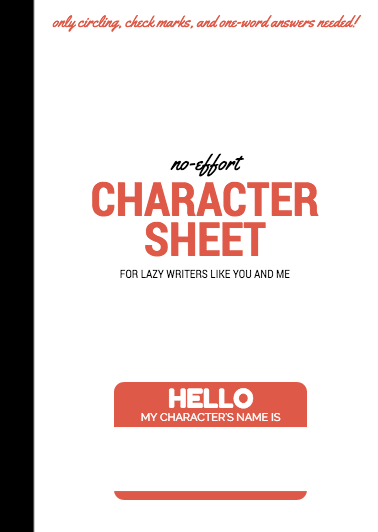
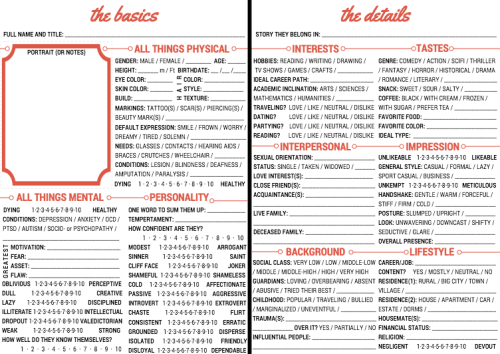
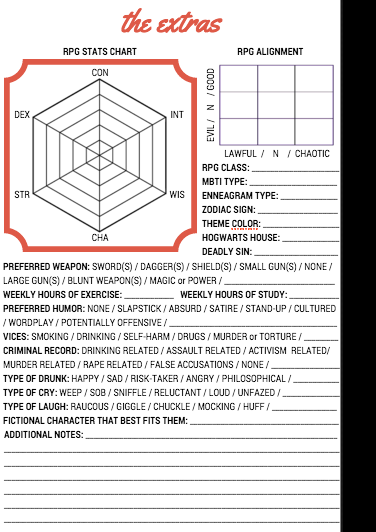
From the makers of the no-effort character checklist, I bring to you… The no-effort complete character sheet for lazy writers like you and me™!
Because the extra effort I put in staying up until 3 am to do put this together can save us all a lot of effort filling out longer character sheets ^^
You’re supposed to print it out and fold it in half to make a little booklet but you can save ink and do it on your computer :P
Link to PDF on google drive (fixed typo)
One thing I like about Pixar films is how the happy ending isn’t always what you think it’ll be. The toys don’t go with Andy to college, Gusteau’s restaurant gets closed down, Mike and Sully get kicked out of university, Carl never gets Ellie to Paradise Falls. But they find out that what they wanted isn’t necessarily what they needed, and I really like the fact that kids get to learn that life doesn’t always turn out the way they dreamed and that’s okay.
